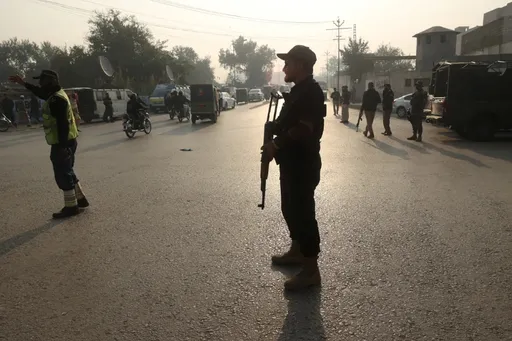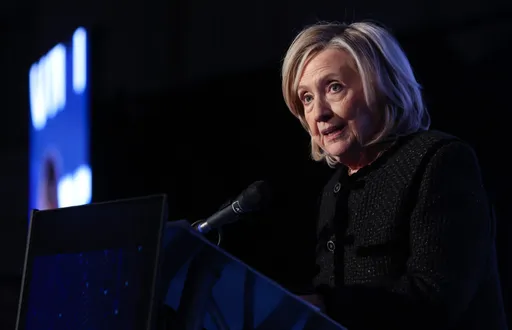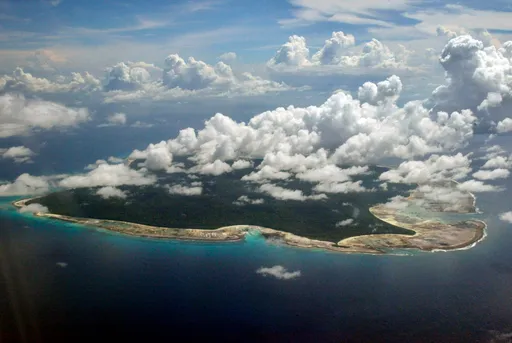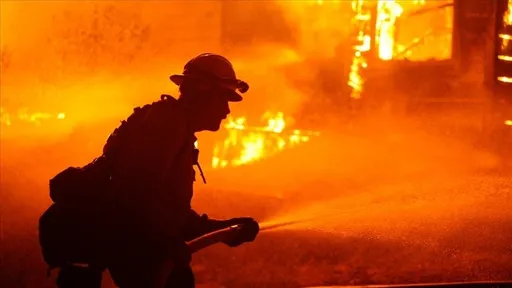Zahraa Al-Akhrass, a journalist with Canadian broadcaster Global News, was terminated for expressing solidarity with Palestinians and writing social media posts critical of Israel’s ongoing war on Gaza.
TRT World spoke to Al-Akhrass, a Canadian citizen of Palestinian descent, regarding her dismissal from the network and the challenges journalists like her, who come from immigrant backgrounds, face in predominantly white newsrooms in Western countries.
Can you talk us through how your employment was terminated?
ZAHRAA AL-AKHRASS: Firing me was the last episode of a long series that was going on for years. This is not the first time it has happened. However, it is the first time I have chosen to speak up about it.
Back in 2021, in May, after tensions that had gripped the neighbourhood of Sheikh Jarrah in East Jerusalem ended up in an aggression against Gaza by Israel, I was posting on social media about the situation. A pro-Israeli pressure group picked up my tweets and contacted my employer.
At the time, a campaign was launched to get me fired for speaking up about Palestine. They had found my tweets "offensive", basically saying I was accusing Israel of killing children and attacking journalists. The company at the time asked me to take down the tweets. I was younger than now. I had less experience. And so I agreed and took down the tweets, but I felt that was silencing me. And I felt that was not right, and that the company should have stood up for the freedom of the press and should have stood up for my right to speak up about the situation in Palestine.
But instead they asked me to take down the comments. So that was a major incident for me. And as I said, they asked me to basically give in to the pressure by that pro-Israeli group. I felt that's not right. And I decided at that time I cannot let that silencing happen again, knowing that I am a Palestinian, knowing that I have first-hand experience with the situation in Palestine. So I expected to be empowered and my voice to be heard. But what I have been seeing is one attempt to silence me after the other, and it ended in terminating my employment just two weeks ago because of the same reason.
So how did they tell you that you were being terminated?
ZA: I am on maternity leave. In Canada, if you are on maternity leave, it is not easy for an employer to terminate an employee while on maternity leave. I was posting on my personal social media accounts about Palestine when I was contacted by my direct manager to remind me of the company’s social media policy about the situation.
The policy basically said that workers in the newsroom need to be fair and balanced. 24/7 when posting about what's going on in Palestine despite any personal views. It felt like it’s known that people have strong views about the situation, about the humanitarian crisis in Palestine but still asking employees to stay shut.
I was told there has been a complaint about me and my manager recommended that I take down any posts I have made before and not to post again publicly about this situation. I replied with an extensive explanation of my beliefs regarding Palestine, my experience as a Palestinian. I told him that these are my personal accounts. I am on maternity leave. These accounts have no mention of the company and that I hope they would stand up to the claims of diversity and inclusion.
If you hire a Palestinian journalist and then ask them not to speak when it comes to Palestine, then what's the point? Unfortunately, I didn't hear back from my direct manager. I had to follow up and I was then presented with a demand to remove everything I had been posting within 3 hours of the receipt of that email or I would be terminated.
I went back and forth with the company asking them to specify which posts, to provide me with links and to provide me with an explanation, to have a discussion with me, to give me the benefit of the doubt, to give me guidance on how to post on the situation. None of that happened.
Do you feel you were singled out because of your immigrant and minority background in a predominantly white newsroom?
ZA: Although I’ve been told I was not being singled out, I felt that I was being singled out, being the only Palestinian journalist. Everyone is aware of that. Everyone is aware of my identity. This is not something new. And yet I was being terminated during these times.
As far as I'm aware, I am the only journalist who was fired for this reason. The problem with silencing minority journalists in Western newsrooms is a symptom of something called institutional bias, or let's call it institutional racism. And that means the policies inside these organisations are made by certain people to benefit those people and those organisations.
So these policies are made to serve the interests of those organisations and those people. They do not speak to the realities of journalists like me. They do not relate to our lived experiences. And so the whole point of tokenism and hiring a small number of racialised journalists so companies can actually count us down as numbers in their yearly reports of diversity and inclusion, but then judge those journalists by those policies that are made by mostly non-racialised people to serve these very organisations. This is institutional bias.
These policies don't relate to people like me, They, in fact, are used against journalists of minorities to silence them. It makes no sense for an organisation to hire me for being a Palestinian, and I'm expected to inform them of their reporting about Palestine and then judge me by those policies.I feel it is the time to challenge this policy.
This is something almost all racialised journalists in Western newsrooms suffer from. We feel like we're literally banging our heads against the wall, trying to get decision-makers to understand us, to actually put themselves in our shoes, to relate to what we're talking about, we feel like we’re being paraded in these newsrooms instead of being empowered
As you mentioned earlier you were forced to delete your tweets in a previous instance, what made you change your mind this time?
ZA: I became a journalist for this specific cause to support my people, my Palestinian people in their plight against the Israeli occupation. I learned the skills of telling stories for this particular reason. I was hoping that by working in a Western newsroom, I would actually help to build bridges between the East and the West, to actually help to make public opinion less polarised.
By putting my experience, by putting my voice on the table. This is what I was trying to do during my three and a half years with Global. However, I always felt I wasn't given my full freedom to do so. I was always given a margin of freedom and not a full extent of freedom. What changed this time is that I felt if you stay silent, it means you'll give consent to what's happening. If you stay silent as a journalist, then you are complicit in the atrocities that are happening. This is what I believe in. A journalist's job is not to basically just state the facts.
You have a job to speak truth to power. You have a job to speak up when you see injustice and atrocities, you must do that. If you think a journalist's job is to state the facts, then Google can do that. A journalist is useless if they think they simply can just state the facts and move on.
You have a responsibility to call out injustice. To call out occupation when you see it. To call out atrocities being committed against a civilian population in Palestine. You must do that. If you choose to turn a blind eye and move on and not say a thing and abide by unethical, selective and biassed policies, then you are complicit in this situation. This time people were literally being killed before our eyes. We are watching this in front of our eyes live on TV. How could any human being, let alone being a journalist, see this and shut up? That was it. This time it was a test of my journalistic integrity and my work ethic. This time, I could not possibly stay silent. I had to speak up and suffer the unfair consequences. Honestly, as I said, I have no regrets. For this reason, there have been colleagues who came before me and more who will come after me, raising their voices to change this status quo at the expense of their jobs, in the hope that the next generation of Western media journalists will be able to truly exercise their freedom without being silenced and terminated.
Since Western media has come under international scrutiny and criticism for always siding with Israel, did your editors ever refuse to acknowledge your point of view or tamper with your stories to suit their own ideological or political agendas?
ZA: I've had several conversations over the years with decision-makers in the newsroom about the coverage of Palestine. Nothing happened. I remember on May 21, 2021, when the whole situation of forced displacement, of ethnic cleansing in the Sheikh Jarrah neighbourhood in eastern Jerusalem was going on for weeks. I believe it was when Hamas fired rockets on Israel as a warning regarding what's going on in East Jerusalem, all of a sudden Western media organisations publish a story about this and all of a sudden Israel looks like the victim. So when the whole situation was over and a truce was achieved, I had a meeting with a senior leader at the organisation and I spoke about this issue and I expressed my opinion that to choose to start the coverage only when Israel is attacked and to forget about everything else, that's bias. to choose to start the coverage from October seven and forget about everything else that happened before that. That's biassed. Palestine is not a trend. The situation, the apartheid system, the atrocities that are being committed by Israel against the Palestinians have been going on every single day for decades. So to pick and choose when to present this to your audience, that is bias. I have spoken up about this several times and I felt like nothing has changed.
The first time, I remember, I felt the narrative wasn’t fair to Palestinians was when a normalisation deal took place between UAE and Israel. And I was on shift that day and when I was writing the script, for a video I have written (this deal threatens to leave the Palestinians further isolated). When my script was being vetted, the supervisor asked me to remove the word ‘threatens’ and I asked why, he said it's because some groups would take issue with that and will face backlash. I agreed to take down the word ‘threatens, but that was an alarm to me. It felt like it was never about policies or about being fair and balanced. It was about the backlash.
Another time I remember was when Shireen Abu Akleh, an Al Jazeera journalist was killed by Israeli gunfire while covering the raids in Jenin in the occupied West Bank. On that day, I was on shift and I volunteered to cover the story because there was raw footage in Arabic and I volunteered to translate. I wanted to write – Al Jazeera journalist Abu Akleh killed by Israeli gunfire based on eyewitnesses testimony. However, the supervisor at the time told me that I had to remove “by Israeli gunfire” and just say “killed” in a passive voice without any indication to the suspect. We went back and forth for a couple of hours trying to convince him to give any indication to the suspect. He refused. The reason I was told was “for the protection of the company”.
It always felt like it's an unspoken rule in Western media newsrooms that you have a very limited margin of freedom to criticise Israel, and if you choose to do so, people will come after you. It happened to me and in the end you might as well just get fired. You would be surprised if I gave you names of the journalists, on-camera personalities, big names in the industry in the West who reached out in support and told me they were proud and they showed solidarity with Palestine. What I have done might be unique, but this is something literally all journalists are suffering from in Canada. Quite a good number of colleagues in different newsrooms reached out and showed support. The situation must change. The coverage has been certainly not balanced at all. And we support you in what you have done. As I said, this is a problem that is underlying in the institutions in the West. Lots and lots of racialised journalists are suffering from this. They just can't speak up because they fear of the consequences. I myself am just an example of what could happen to you if you choose to speak up. People are threatened with their livelihoods. People cannot speak up because they are afraid to lose their jobs and their source of income if they just choose to have an ethical stance about Palestine. So this just speaks to the reality about the freedom of the press, about what I choose to call it fake democracy, one-sided democracy when it comes to criticising Israel.
What was the reaction of your family when you received that notice about termination? Have any of your colleagues reached out to you to like WhatsApp and other channels as support?
ZA: You would be surprised if I gave you names of the journalists on camera personally. These big, big names in the industry in the West who reached out in support and told me they were proud and they showed solidarity with Palestine.
What I have done might be unique, but this is something literally all journalists are suffering from in Canada.
Quite a good number of colleagues in different news jobs, not just in my former newsroom, but in other organisations as well, reached out and showed support and said, we totally agree with what you have done. The situation must change. The coverage has been very stingy and certainly not balanced at all. And we support you in what you have done.
As I said, this is a problem that is underlying in the institutions in the West. Lots and lots of racialised journalists are suffering from this. They just can't speak up because they fear the consequences. I myself am just an example of what could happen to you if you choose to speak up. People are threatened with their livelihoods. People cannot speak up because they are afraid to lose their jobs and their source of income if they just choose to have an ethical stance about Palestine.
So this just speaks to the reality about the freedom of the press, about what I choose to call it fake democracy, one sided democracy in the West.
And what did your family tell you when you told them that you were terminated?
ZA:My family lives in Jordan. The whole atmosphere is different.So they were actually very proud. My dad told me not to work in such an environment is better than to help the oppressor with your silence.























